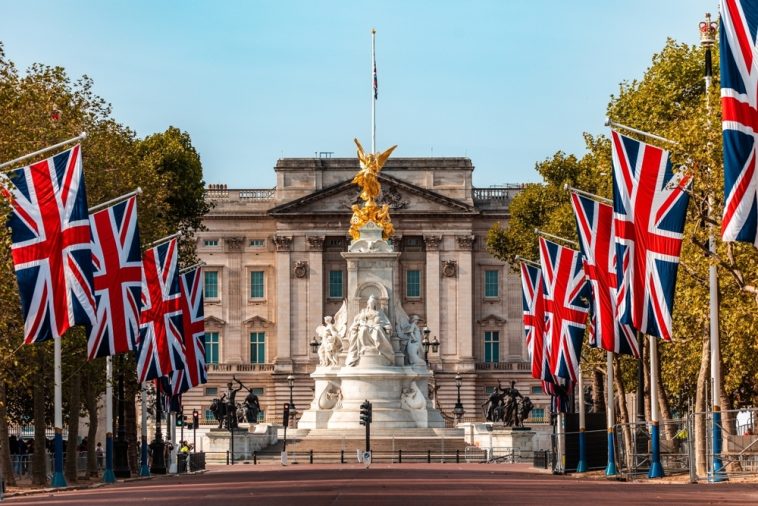Introduction.
Tax season always brings up a mix of feelings. For many of us, it’s a time to reflect on the year gone by—and for some, it’s also a time to feel that gut-wrenching pain when looking at how much you owe the taxman.
But what if you could legally reduce that tax burden and keep more of your hard-earned money in your pocket? That’s exactly what we’re going to dive into today.
Paying less tax doesn’t mean avoiding taxes (which, by the way, is illegal). Instead, it’s about using the rules to your advantage and ensuring you’re not paying more than you need to.
I’m here to walk you through some simple strategies that can help you pay less tax in the UK—legally, of course.
From tax allowances and deductions to using your business and investments wisely, there’s plenty you can do.
If you’re like most people, taxes are one of those topics that can feel overwhelming, but it doesn’t have to be.
1. Understand Your Tax Allowances
One of the easiest ways to reduce the amount of tax you pay is by making sure you’re taking full advantage of the tax allowances available to you.
Tax allowances are the amount of income you can earn before paying tax. If you’re not making the most of them, you’re probably overpaying without even realising it.
Personal Allowance
The standard personal allowance is £12,570 (as of 2023/24). This means that if you earn up to £12,570, you don’t pay any income tax. Anything above this will be taxed at the basic rate unless you’re eligible for other allowances.
Marriage Allowance
If you’re married or in a civil partnership and one of you earns less than the personal allowance, you can transfer a portion of that unused allowance to your partner. This could save you up to £252 a year. Not a huge sum, but it’s free money!
Blind Person’s Allowance
If you’re registered blind, you can receive an extra £2,620 allowance. Again, it’s a simple way to reduce your taxable income.
2. Contribute to Pension Schemes
One of the most powerful tools at your disposal is contributing to a pension scheme. Not only are you saving for your retirement, but you can also reduce your taxable income.
Contributions to pension schemes (like a workplace pension or a private pension) are tax-free, meaning the money you put in is deducted from your gross income before tax is calculated.
For example, if you earn £30,000 and contribute £5,000 to your pension, your taxable income is reduced to £25,000. This could mean paying less tax because you’ve lowered the amount of income that is subject to tax.
Salary Sacrifice Schemes
If your employer offers a salary sacrifice pension scheme, you could save both on tax and National Insurance (NI) contributions.
This means you agree to give up part of your salary in exchange for a larger pension contribution, effectively reducing your taxable income even further.
3. Take Advantage of Tax-Free Investments
Several investment schemes in the UK allow you to grow your money while paying little to no tax on the gains.
ISAs (Individual Savings Accounts)
You can put up to £20,000 (for the 2023/24 tax year) into an ISA and any interest, dividends, or capital gains you make are tax-free. Whether you choose a cash ISA, a stocks and shares ISA, or an innovative finance ISA, you don’t have to worry about tax on the returns.
Venture Capital Trusts (VCTs)
If you’re interested in taking on a bit more risk, investing in a VCT can offer tax reliefs. These include income tax relief of 30% on investments up to £200,000 in a single tax year. Plus, any dividends or capital gains from VCT investments are tax-free.
4. Capital Gains Tax: The Basics
When you sell an asset (like a property, shares, or anything else you’ve invested in), any profit you make is usually subject to Capital Gains Tax (CGT). However, there are a couple of ways to minimise this tax.
The Annual Exempt Amount
The good news is that there’s an annual exempt amount, which means you can make up to £6,000 in capital gains without paying any tax (as of 2023/24). If your capital gains are under this amount, you don’t need to pay CGT at all.
Use of Losses
If you make a loss on an investment, you can use that loss to offset your gains in the same tax year. This can help reduce the amount of CGT you owe.
For example, if you made a £5,000 gain and had a £2,000 loss, you’d only pay tax on £3,000 of the gain.
5. Consider Your Business Structure (If You’re Self-Employed)
If you run your own business, the way you structure your business can make a big difference to the amount of tax you pay.
For example, some people may choose to set up a limited company rather than working as a sole trader.
Limited Company
By operating through a limited company, you can reduce your income tax by paying yourself in a combination of salary and dividends. Dividends are taxed at a lower rate than salary, meaning you pay less tax overall. You can also offset business expenses against profits, reducing your taxable income.
Claim Business Expenses
Don’t forget to claim all the business expenses you’re entitled to. This includes things like office supplies, business travel, and even part of your home bills if you work from home. These expenses reduce your business’s profits, meaning you’ll pay less tax.
6. Make Charitable Donations
Giving to charity can reduce your tax bill through Gift Aid. When you donate to a charity that is registered with Gift Aid, the charity can claim back 25p for every £1 you donate at no extra cost to you.
On top of that, your donation can be grossed up for tax purposes, meaning you can get more tax relief.
7. Be Mindful of Inheritance Tax
Inheritance tax (IHT) can catch people off guard, but there are steps you can take to reduce it. The key thing to remember is that you don’t pay IHT until your estate is worth over £325,000.
However, if you’re planning to leave a legacy, it’s a good idea to look at making tax-efficient gifts during your lifetime or using trusts.
FAQs
Can I claim tax relief on my home office expenses?
Yes, if you work from home, you can claim part of your household bills (like heating, electricity, and internet) as business expenses. The amount you can claim depends on how much of your home is used for work.
How do I reduce Capital Gains Tax on property?
If you’re selling a property that isn’t your primary residence, you may be liable for CGT. However, if the property has been your main home throughout ownership, you may be eligible for Private Residence Relief, which could reduce or eliminate the tax.
Further Resources
Conclusion
Taxes might seem like an unavoidable burden, but with a little knowledge and careful planning, it’s possible to pay less and keep more of your hard-earned cash.
From making the most of allowances and investments to structuring your business smartly, there are plenty of legal ways to reduce your tax bill in the UK.
But here’s the big question: Could you be paying less tax right now without even realising it? Let me know what strategies you’re going to try first!





GIPHY App Key not set. Please check settings